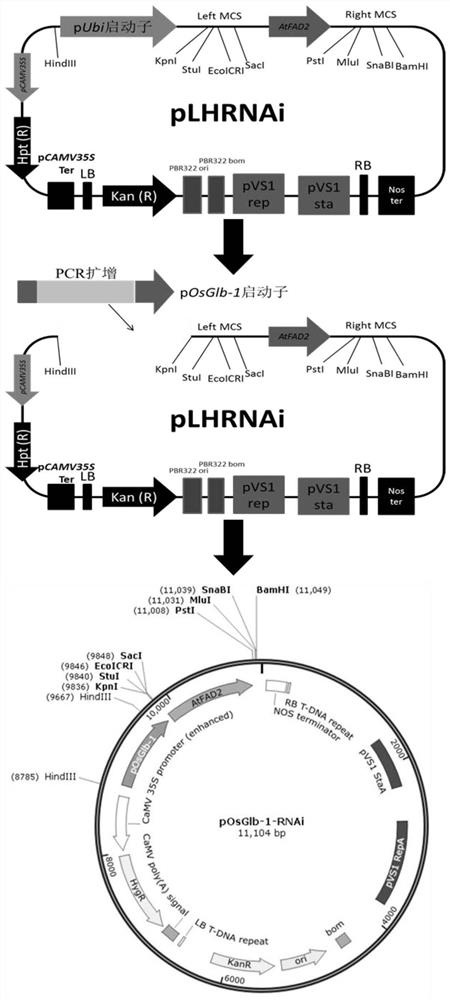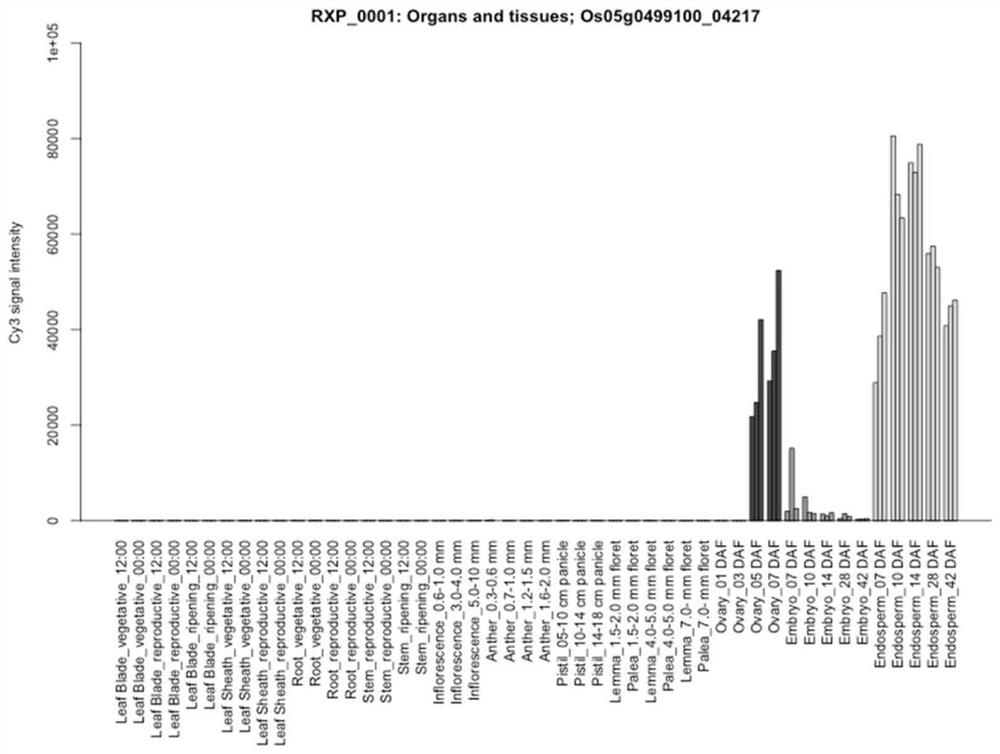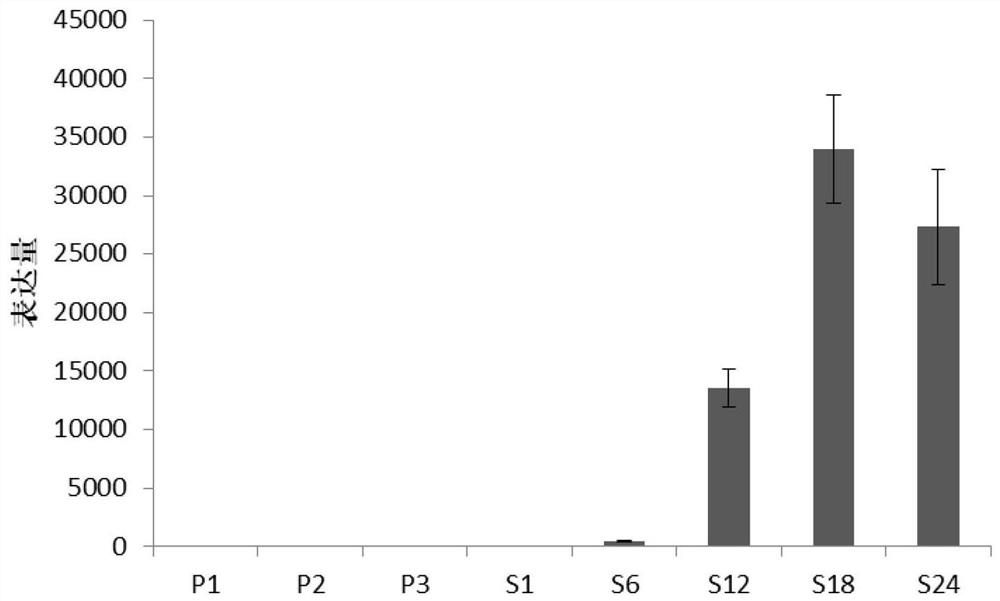A seed-specific interference vector comprising posglb-1 promoter and application thereof
A technology of posglb-1 and interference carrier, which is applied in the field of seed-specific interference carrier, can solve the problems of no OsMADS1 gene rice protein content application research report, plant fertility and yield decline, difficult practical application, etc., and achieve improved rice nutrition quality and increase the protein content of rice
- Summary
- Abstract
- Description
- Claims
- Application Information
AI Technical Summary
Problems solved by technology
Method used
Image
Examples
Embodiment 1
[0074] Example 1: Construction of pOsGlb-1-RNAi vector
[0075]The pOsGlb-1-RNAi vector was constructed by using the homologous recombination directional cloning method to clone the promoter of the rice seed-specific expression gene OsGlb-1 into the plant constitutive RNA interference binary vector with hygromycin selection marker. pLHRNAi, and replace the original Ubiquitin constitutive expression promoter pUbi in the pLHRNAi vector to obtain the pOsGlb-1-RNAi seed-specific interference vector. Wherein, the pOsGlb-1 is the promoter of the OsGlb-1 gene. The construction flow chart and vector map of the pOsGlb-1-RNAi vector are as follows: figure 1 As shown, the specific construction method is as follows:
[0076] 1. OsGlb-1 gene expression profile analysis
[0077] 1. OsGlb-1 gene expression profile analysis based on gene chip database
[0078] Expression profile analysis of OsGlb-1 gene in Nipponbare (Nipponbare, rice variety, subsp. japonica). First use RiceXPro rice ge...
Embodiment 2
[0143] Example 2: Construction of pOsGlb-1::OsMADS1-RNAi vector
[0144] The schematic diagram of the structure of the pOsGlb-1::OsMADS1-RNAi vector and the main construction process are as follows: Figure 7 shown. The specific operation method is as follows:
[0145] 1. OsMADS1 gene expression profile analysis
[0146] 1. Transcriptional profiling of OsMADS1 gene based on gene chip database
[0147] Firstly, the expression profile of OsMADS1 (gene number: Os03g0215400) gene in Nipponbare was analyzed using RiceXPro rice gene chip expression database. Figure 8 As shown (you need to enter the URL http: / / ricexpro.dna.affrc.go.jp / category-select.php according to the picture, enter Os03g0215400 in the Search options in the webpage, then click search, and then click FeatureNum in the new webpage After entering the number, check the Spatio-temporal profile on the new web page, you can query this graph, and click Downloadselected graph on the web page to get this graph). OsMAD...
Embodiment 3
[0238] Example 3: Specific application and effect display of pOsGlb-1::OsMADS1-RNAi seed-specific interference vector
[0239] 1. The pOsGlb-1::OsMADS1-RNAi and pUbi::OsMADS1-RNAi plasmids constructed in Example 2 and Comparative Example were sent to Hangzhou Baige Biotechnology Co., Ltd. to transform rice varieties Nipponbare respectively. The conversion process is as follows:
[0240] 1. Callus induction and subculture of rice mature seeds
[0241] Pick mature rice seeds, peel off the glumes, pour them into a 50ml centrifuge tube, add 75% ethanol for sterilization for 1 min, pour off the ethanol, rinse with sterile water, and then pour out, add 30% sodium hypochlorite for disinfection for 20 minutes, pour out the sodium hypochlorite, use Rinse with sterile water 5 to 6 times. Remove excess water with a pipette and transfer the seeds to induction medium, 20 to 25 seeds per dish. After the callus grows, the original embryo can be used for direct transformation; the small pa...
PUM
 Login to View More
Login to View More Abstract
Description
Claims
Application Information
 Login to View More
Login to View More - R&D
- Intellectual Property
- Life Sciences
- Materials
- Tech Scout
- Unparalleled Data Quality
- Higher Quality Content
- 60% Fewer Hallucinations
Browse by: Latest US Patents, China's latest patents, Technical Efficacy Thesaurus, Application Domain, Technology Topic, Popular Technical Reports.
© 2025 PatSnap. All rights reserved.Legal|Privacy policy|Modern Slavery Act Transparency Statement|Sitemap|About US| Contact US: help@patsnap.com



